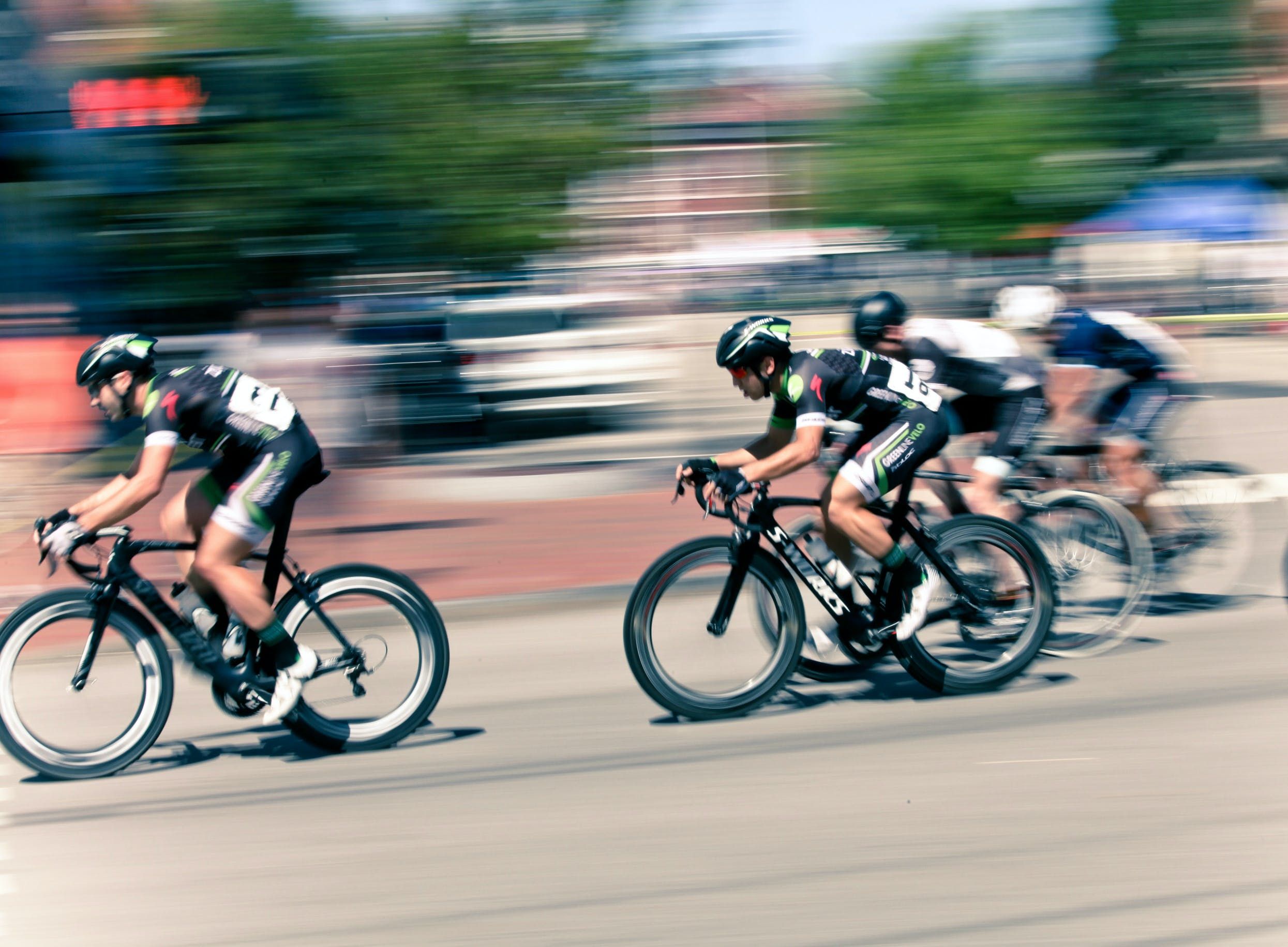As the stigma surrounding cannabis slowly fades and knowledge of its benefits continues to spread, an increasing number of professional athletes are coming out of the closet and admitting to marijuana use for sports performance.
Studies involving cannabis and exercise science are limited, and those that do exist often serve to discourage marijuana use in sports. However, plenty of anecdotal evidence and some scientific studies vouch for the reasons athletes use cannabis to help them train—among them the ability to enhance focus, reduce anxiety and eliminate feelings of fatigue. There might also be other performance-boosting mechanisms that athletes have yet to widely acknowledge, like marijuana’s ability to act as a bronchodilator and stimulate blood flow.
1. Marijuana Can Help Athletes Focus
Many athletes who take part in endurance and combat sports say cannabis helps them focus during training and competition. Jim McAlpine, founder of the 420 Games, says cannabis brings him into “flow state,” a psychological term used to describe full immersion in an activity wherein a person experiences feelings of focus and enjoyment in the task at hand—or as Jim puts it, “It’s when your body and mind become one.”
What Jim says makes sense when you consider a more extreme case: Adults with ADHD who medicate with cannabis find that it helps them relax and focus. Some even prefer it over prescription medications. A study earlier this year found preliminary evidence supporting cannabis use for ADHD, although the exact mechanism of how cannabis enhances focus in ADHD patients is still not understood. ADHD/ADD seems to result from a dysfunction in dopamine release and uptake in the brain so it’s likely that cannabis, which is intricately linked to the body’s dopamine signaling system, may be influencing ADHD patients in some way.
However, many people would argue that cannabis has the opposite effect on them, and just because cannabis can enhance focus in those with ADHD, doesn’t mean it can have the same effect across a population of people with a variety of brain chemistries. To address this, VapeXhale Founder Seibo Shen—who uses cannabis as part of a training regimen for combat athletes—has his clients establish athletic goals before starting a cannabis training regimen. He then uses cannabis to help them zero in on those goals.
“Weed brings you back to a child’s mind,” he says. “You see something interesting and your attention focuses on that interesting thing. If we make that thing your competition—that’s when we increase performance.” Seibo uses cannabis to help his clients become “supple leopards”—calm and focused, yet also dynamic and ready to spring into action.
RELATED: 3 POPULAR QUESTIONS ABOUT MARIJUANA & SPORTS ANSWERED
2. Marijuana Can Make Athletes Less Anxious Before Performing Sports
Reducing anxiety with cannabis can have a number of applications for athletes—whether it’s calming nerves prior to a race or helping them get a good night’s sleep before game day. Anti-anxiety properties are usually associated with cannabidiol (CBD), which has shown much promise in the treatment of mood disorders. However, plenty of people anecdotally state that even cannabis with tetrahydrocannabinol (THC) has helped them with anxiety issues.
While research into THC’s anti-anxiety properties is more limited than with CBD, the World Anti-Doping Agency (WADA) thinks that cannabis with THC can help with anxiety, which is why it’s still considered a performance-enhancing drug (PED). In 2013, the agency raised the levels of marijuana athletes were allowed to have in their system so that out-of-competition use wouldn’t necessarily disqualify them.
WADA was interested in testing for athletes who were using the plant to enhance performance, citing cannabis’s ability to decrease anxiety and fear, as well as improve some types of concentration and oxygenation. Of course, whether cannabis should be classified as a PED, on par with steroids or other drugs, is up for debate.
3. Marijuana May Help Athletes Breathe Better
A few small studies suggest that THC can act as a bronchodilator—in other words, it can increase airflow to the lungs—a characteristic that can help some athletes perform better. Previous studies in asthmatic patients have found that THC’s anti-inflammatory properties reverse constriction in the lungs. Additionally, a small 12-person study conducted in 1986 found that smoking cannabis induced bronchodilation during and after exercise, leading some to consider cannabis’s performance-enhancing abilities at a physiological level.
“I think that on some level [cannabis] helps with your ability to take in oxygen and regulate your heart rate,” says Jim. “It’s sad that we don’t have enough data on this.” In spite of the lack of research on this topic, some athletes have already tuned into these possible benefits. Brittney Lusk, a jiu-jitsu fighter began using cannabis to help her have more control over her body when training.
“I use [cannabis] for mindfulness, breathing and maintaining my heartrate,” she says. “It’s important when you’re in jiu-jitsu that you don’t freak out and increase your heart rate, so being mindful of your breathing very important.”
4. Marijuana Can Help Athletes Work Out Longer and Harder
Studies suggest that our bodies’ own endocannabinoids play a role in the “runner’s high” we sometimes experience when exercising—a state that’s usually associated with reduced pain and anxiety, as well as general feelings of contentment. Molecules called endorphins are what are often associated with the “runner’s high,” but endorphins can’t actually pass through the blood-brain barrier, causing some scientists to hypothesize that something else is contributing to this blissful state.
Researchers have found increased levels of the endocannabinoid AEA in mice after exercise, and scientists at the University of Texas Health Center found that people had higher levels of the endocannabinoids in their bloodstream after moderate intensity treadmill running. This suggests that endocannabinoids play a role in the “runner’s high” that often increases our pain threshold so that we can work out longer and harder.
THC mimics our bodies’ own endocannabinoids so it’s not surprising that some athletes use cannabis to help them extend and improve the quality of their workouts.
Carlos Chavez, an amateur mixed martial arts fighter and participant in Cannathlete uses marijuana when he’s lifting weights because it allows him to push through the pain and do more repetitions. Jim reports similar experiences—in college, cannabis helped motivate him to hit the gym for long training sessions.
“When I would smoke, I’d stay [in the gym] twice as long…lifting as hard as I could. I began to see that cannabis was the biggest motivator for me to get off the couch and go to the gym,” he says.
Tips for Trying Cannabis With a Sport
Cannabis has numerous applications in sports. However, it’s important to remember that using cannabis in this way isn’t for everyone. People who use cannabis to boost performance already tend to be decently athletic, says Jim. In addition, he’s noticed a trend in the type of sports that are more likely to benefit from the increased focus and relaxation that cannabis induces.
“Where [cannabis] is most prevalent and beneficial are in communities where your brain is a big piece of getting to the finish line—it’s more individual,” he says.
If using cannabis during a workout is something you’d like to try, Jim recommends recruiting an exercise buddy. He also advises users to “start incredibly slow, always err on the side of caution, take less rather than more.”
Photo credit: Dimon Blr
If you’re new to cannabis and want to learn more, take a look at our Cannabis 101 post. HelloMD can help you get your medical marijuana recommendation; it’s easy, private and 100% online.






